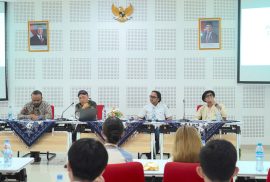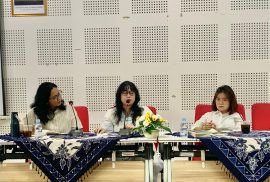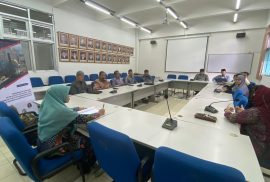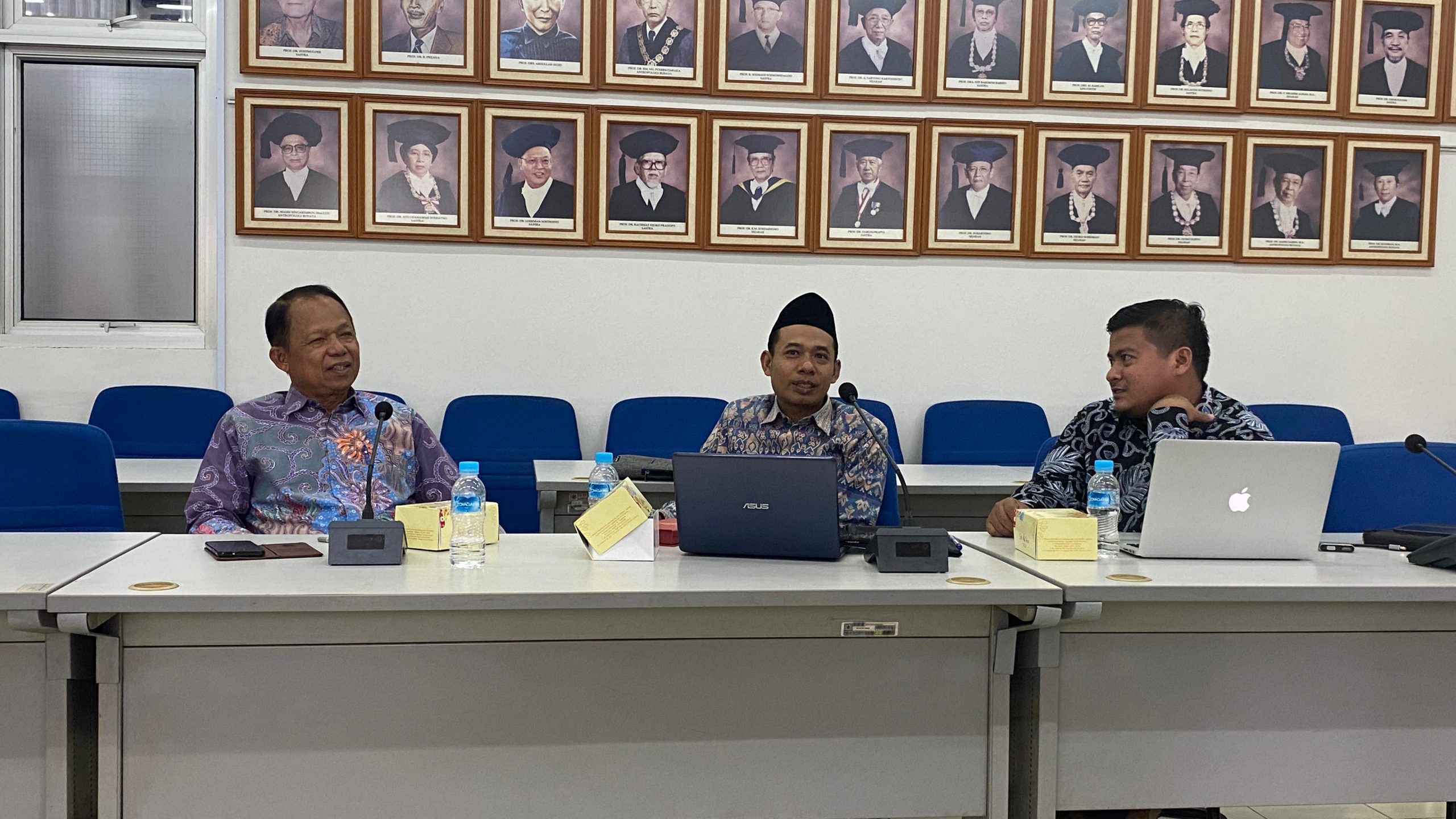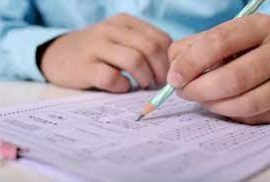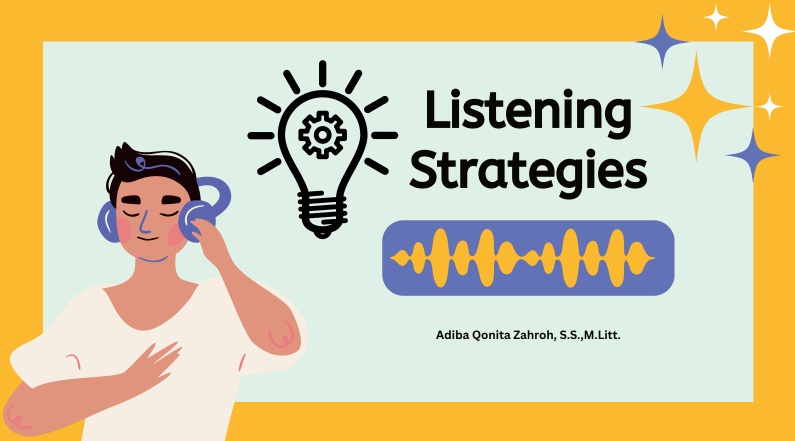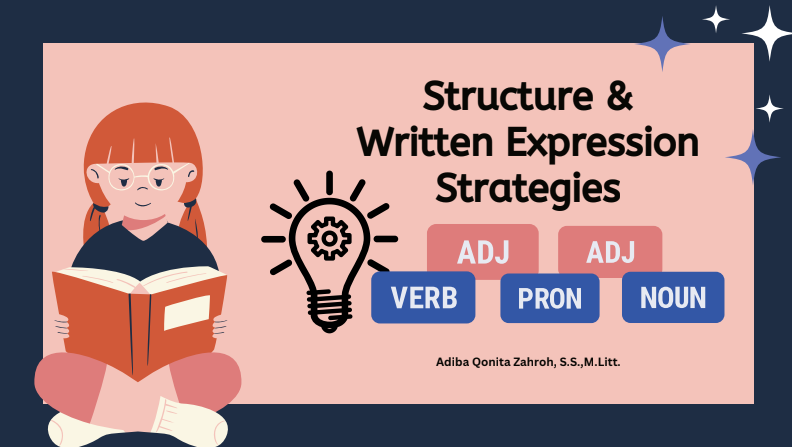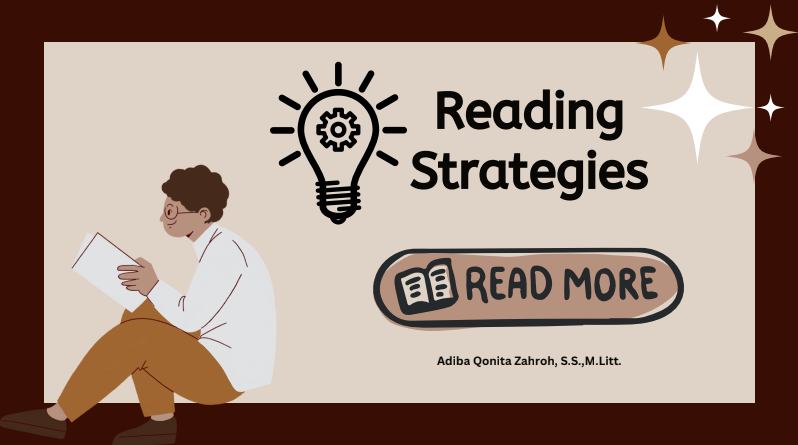Yogyakarta, October 20, 2025 — The Department of Language and Literature, Faculty of Cultural Sciences, Universitas Gadjah Mada, held an event titled Expert Lecture: The Transformation of the Indonesian Language in Digital Media on Monday, October 20, 2025, at 9:00 a.m. in Room S709, Soegondo Building, 7th Floor. The event brought together three distinguished linguists from various Indonesian universities: Prof. Dr. Munira Hasjim, M.Hum. (Professor at Hasanuddin University), Dr. Bernadette Kushartanti, M.Hum. (Lecturer at Universitas Indonesia), and Dr. Sailal Arimi, M.Hum. (Lecturer at Universitas Gadjah Mada), moderated by Deni Ferdiansa, S.S., M.A. The discussion served as an important platform to explore the dynamics and challenges of the Indonesian language amid the rapid pace of digitalization.
In her presentation, Prof. Munira Hasjim emphasized the importance of maintaining consistency in the use of the Indonesian language to prevent degradation in the digital era. She highlighted four major linguistic phenomena that characterize language transformation in online spaces: the widespread use of acronyms and abbreviations such as bucin, mager, and gercep; creative manipulation of graphemes and orthography, such as using all lowercase letters or excessive capitalization; frequent code-switching with English in everyday expressions; and the rising use of harsh or offensive language in social media interactions. According to her, these shifts are driven by three main pillars — digital identity, community solidarity, and communication technology — which have turned language into not only a communication tool but also a medium for self-expression and a marker of social belonging in virtual spaces.
Meanwhile, Dr. Bernadette Kushartanti discussed the role of digital media as an inseparable part of modern life, especially for Generations Z and Alpha. She explained that their linguistic behavior reflects their social identity in the online world, with code-switching and the use of slang serving as expressions of cultural belonging, social status, and individuality in a multicultural environment. Bernadette also cautioned that excessive exposure to digital media can affect behavior, leading to issues such as anxiety, impatience, and reduced self-reflection. Therefore, she stressed the importance of digital literacy and linguistic awareness to ensure that creativity in online language use remains aligned with good language values and norms.
In his presentation, Dr. Sailal Arimi examined how language phenomena on social media reflect the collective identity of today’s youth. Terms such as “Negara Konoha” and “Warga +62” have emerged as satirical symbols representing both social critique and a sense of belonging among the digital generation. He noted that virtual communication serves two main purposes — efficiency and self-expression. Digital language enables users to exchange information quickly through abbreviations like FYP while also asserting social identity and perspective through expressions such as ACAB or SJW. This illustrates that in the digital era, language is not only changing in form but also in its social function as a tool for community building in virtual spaces.
These phenomena enrich the Indonesian lexicon, expand linguistic variation, and demonstrate the vitality of the language. However, they also present challenges, including declining awareness of formal linguistic norms and potential miscommunication across contexts. The event concluded in an engaging atmosphere, with many students enthusiastically asking questions and engaging in direct dialogue with the speakers, making the forum not only informative but also interactive and full of academic energy.
[Public Relations of FIB UGM, Candra Solihin]




